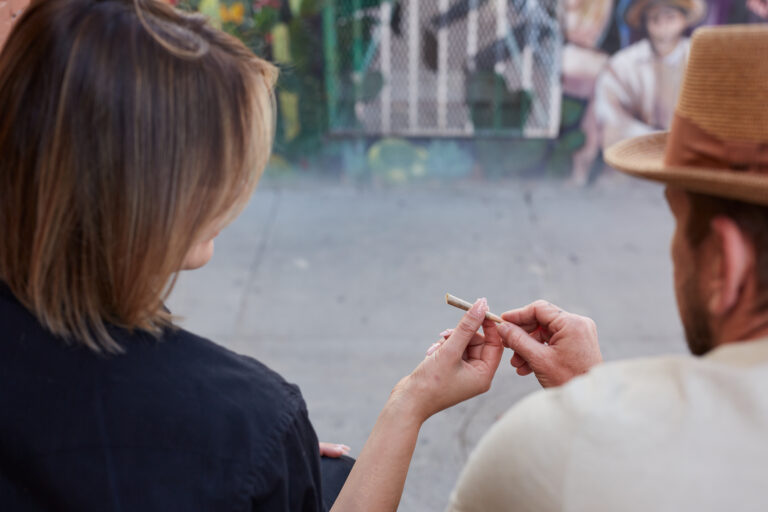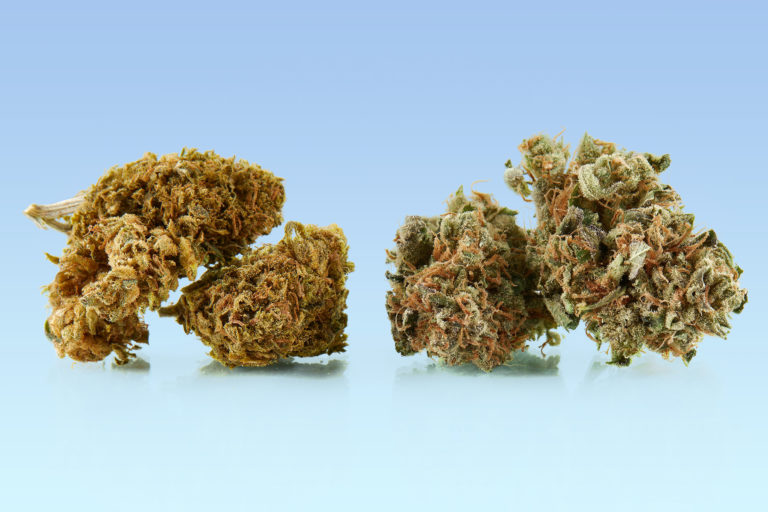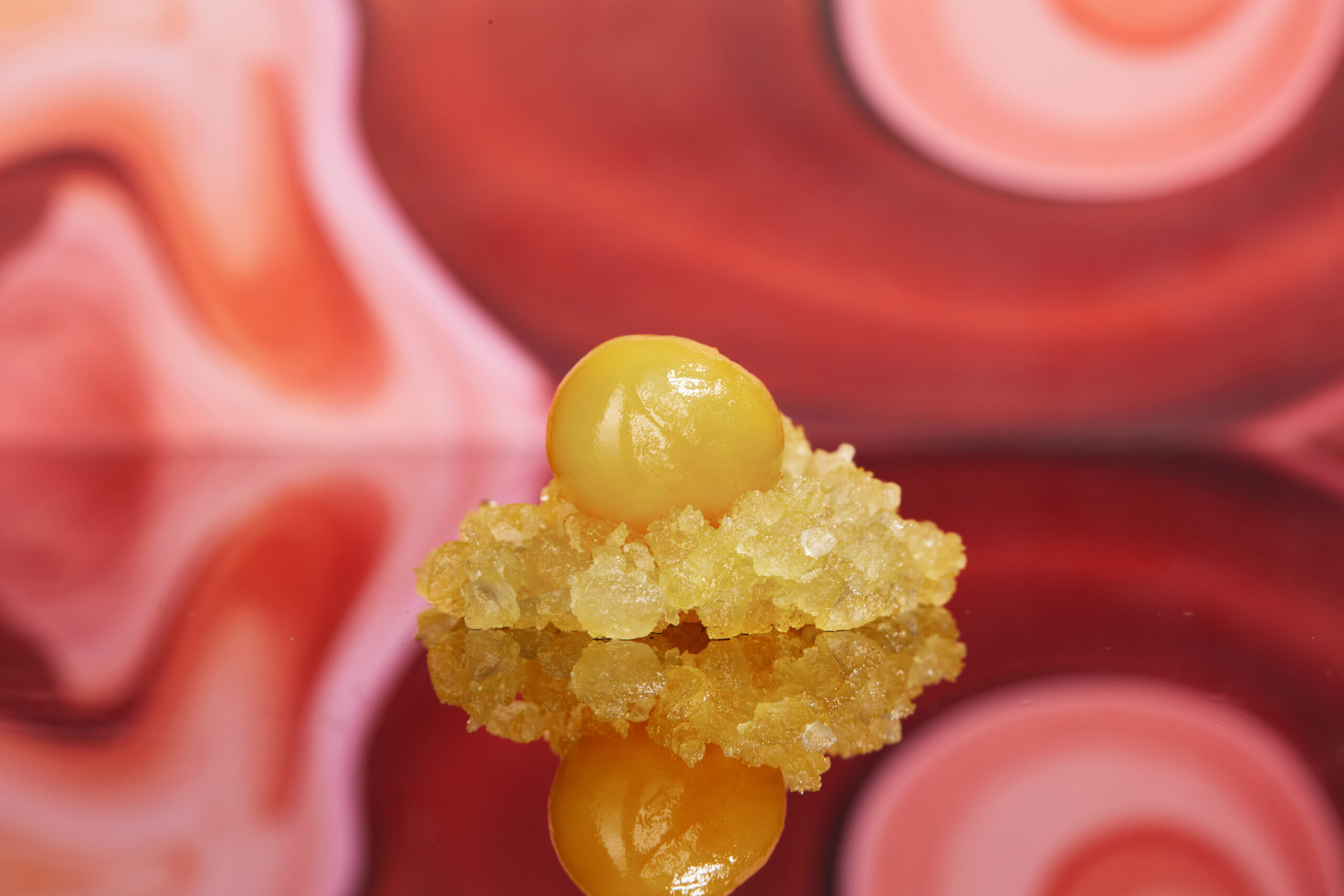The cannabis plant has been used for centuries for medicinal, religious, and recreational purposes. It's also been outlawed, demonized, and railed against in societies across the globe. The nature of being so many things to so many people inherently leads to a lot of names.
Where did all these unique names originate? Why did they get so popular? Learn about the many cannabis terms, specifically for smokable cannabis flower, and how they came to be.
Why are there so many slang names for cannabis?
There are a variety of reasons that cannabis goes by so many names, add in the occasional need to be covert and the infinite creativity of weed lovers, and you get the proliferation of slang terms.
 Photo by: Gina Coleman/Weedmaps
Photo by: Gina Coleman/WeedmapsImage lightbox

These slang terms typically fall into five main categories: products of criminalization, cannabis culture, non-English language, quality of the weed, and quantity.
Criminalization
Many common slang terms serve to hide what you're talking about from others, usually authority figures. As such, slang terms tend to morph and change over time as the “out” group catches on to what the “in” group is talking about — in this case, the cannabis plant. When something is criminalized but still in popular use, the names for it naturally go underground.
Some slang names that began as ways to hide from law enforcement include:
- Grass is an old-school term from the counterculture in the '60s and '70s used to keep your old man from harshing your mellow.
- Marijuana is a common slang term most likely coined during the United States' smear campaign to outlaw the plant by associating it with Mexican immigrants.
- Mary Jane is one of the earliest slang terms that likely came from a play on the word "marijuana." Variations include MJ, Aunt Mary, Maria, and Marie Jeanne (French).
- Skunk is a slang term coined in the US. It's just a strain or type of cannabis in the States, but in the UK, it's been used to stir up fear about a super-strong weed that induces psychosis.
- Boom, Dope, Hash, Indo, Mota, Reefer, and Yerba all come from the US Drug Enforcement Agency's latest list of street names for cannabis.
Weed culture
Cannabis culture has had a huge influence on popular cannabis monikers. Since the culture can be so creative and tongue-in-cheek, many clever names have popped into existence to refer to weed.
 Photo by: Gina Coleman/Weedmaps
Photo by: Gina Coleman/WeedmapsImage lightbox

Some of the following terms come from pop culture, while others are just stoners having fun:
- Bud is a common slang term for weed flowers in the US.
- Nug, like bud, is another common term for cannabis flower.
- Sticky icky is weed slang for bud, but it also refers to the fact that trichome-dense nugs can be sticky when handled.
- Buddha is commonly used in reference to weed, perhaps to draw parallels between the Buddha's enlightened state of mind and stoners' relaxed state of being.
- Green relates to the color of a healthy cannabis plant and fresh cannabis flower.
- Muggle was a term used for weed and joints long before it came to mean non-magical fictional characters.
- Wacky tabacky is an old-school term for weed that managed to make its way into the Merriam-Webster dictionary.
Language
There are many reasons for the different slang terms for cannabis around the world. One is simply language. Whether it's a current translation or the fact that weed has migrated from country to country, what's weed in the US may be ganja in India and other Hindi-speaking areas.
Other international examples of weed slang include:
- Dagga is a South African word for cannabis that's also spelled daggha, dacha, dacka, dachka, and tagga.
- Da Kine is Hawaiian surfer slang for pot, and it may also be where "kind bud" comes from.
- Erba means weed in Italy.
- Erva means weed in Brazil, though Brazilians also use the term machohna.
- Hanf is the German word for hemp, but it's also a synonym for cannabis.
- Herb is the word used in Jamaica and Rastafarian culture to denote the fact that the cannabis plant is a natural product.
- La beuh is French slang for weed.
- Mota is the Spanish word for weed, though it may also mean a small quantity of weed.
- Pot may be from the Mexican Spanish word potiguaya, which is a portmanteau for potación de guaya, which is wine that has buds steeped in it.
- Sinsemilla, or sin semilla, is the literal Spanish phrase for without seed. This term is also written sensimilla, sensimilia, and sensi.
- Travka means weed in Russian.
- Wiet is the Dutch word for weed.
- Yerba is slang for weed in Spanish and not to be confused with the herbal tea yerba mate.
Quality
At least some of the slang terms for cannabis come from consumers developing short-hand language to refer to weed's quality. In the market's not-so-distant past, quality may have been conflated with THC levels, but today's cannasseur knows there's more to quality bud than just the THC percentage.
 Photo by: Gina Coleman/Weedmaps
Photo by: Gina Coleman/WeedmapsImage lightbox

Here are some of the terms related to the quality of your bud:
- High-quality weed. Some terms for high-quality weed include top-shelf, loud, chronic, kind, headies, fire, or piff. Dank is also a popular term for top-notch cannabis that has a rich smell of damp earth.
- Average weed. Mid or mids is one of few terms for weed that's not quite top of the line but it's not awful either. It's average, the C-student of bud. Beaster is another slang term in this quality category.
- Bad weed. Low-quality weed goes by a lot of names. Ditch weed, regs, reggie, schwag, dirt weed, and brick weed all refer to dry, crumbly, brown, harsh-smelling, unappealing weed you shouldn't find in any licensed dispensary.
Quantity
Similar to the phrases used for quality, some weed terms are commonly used as short-hand language for quantities of weed.
- Dime, or dime bag, is shorthand for ten dollars worth of weed, which is typically an amount no larger than a gram.
- Dub is shorthand for two grams of weed.
- Eighth is the most common of quantity-related weed slang and means an eighth of an ounce of weed, or 3.5 grams.
- Slice also refers to an eighth of weed, or 3.5 grams.
- Quarter is seven grams, or a quarter of an ounce.
- Zip is the shorthand term for one ounce of weed, or roughly the amount of weed that can fit in a Ziploc bag.
Bottom line
The very nature of slang means the popular phrases and names for weed are constantly changing, though some have stood the test of time. Who knows, in the future, there'll likely be even more terms to replace dime, grass, sticky icky, and more.
Written by Lesley Nickus | Featured image by Gina Coleman/Weedmaps




